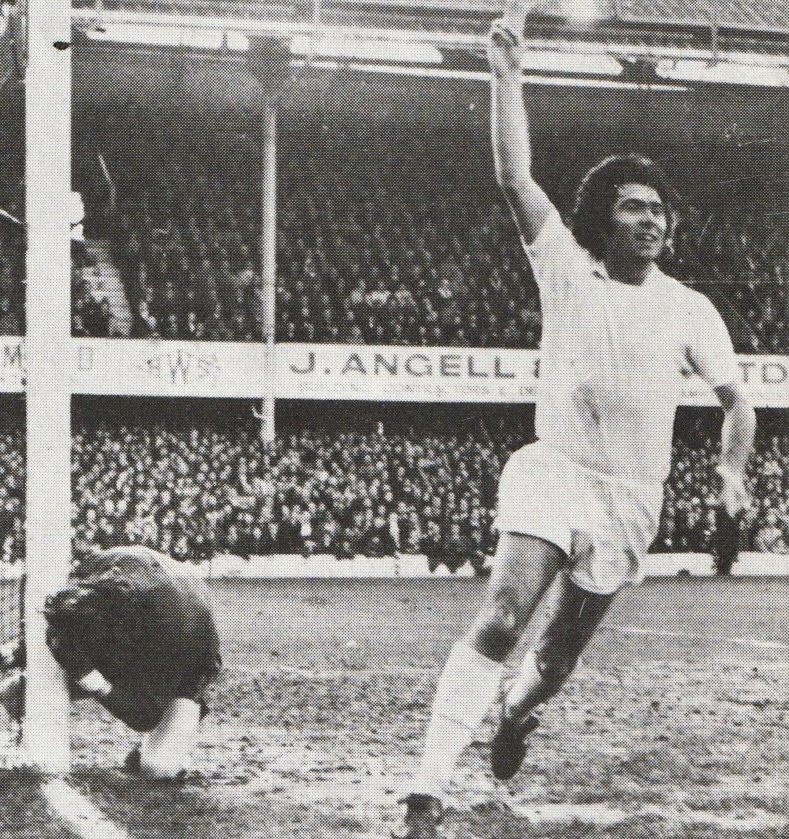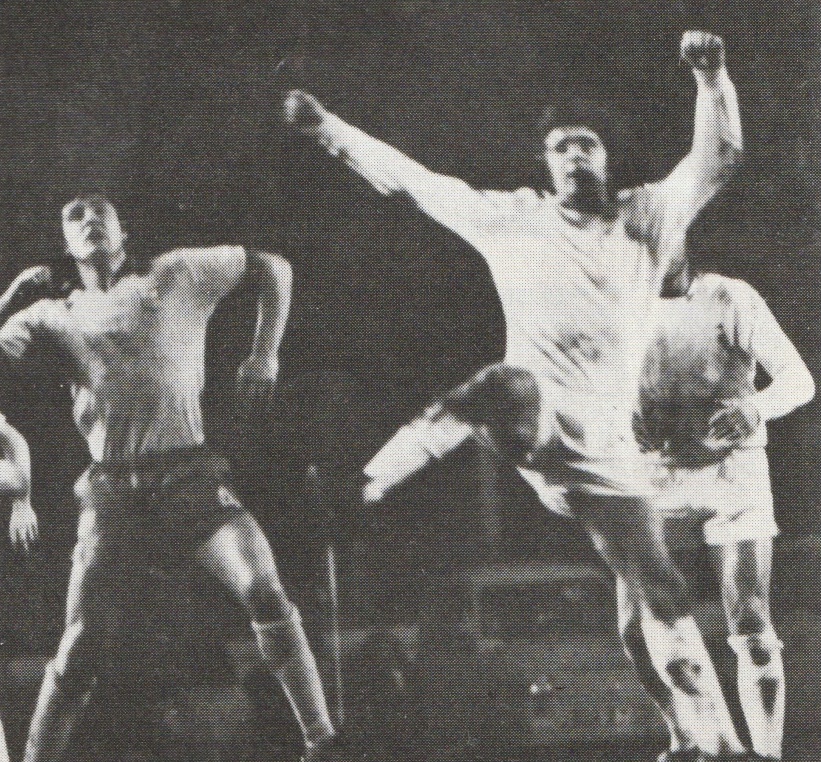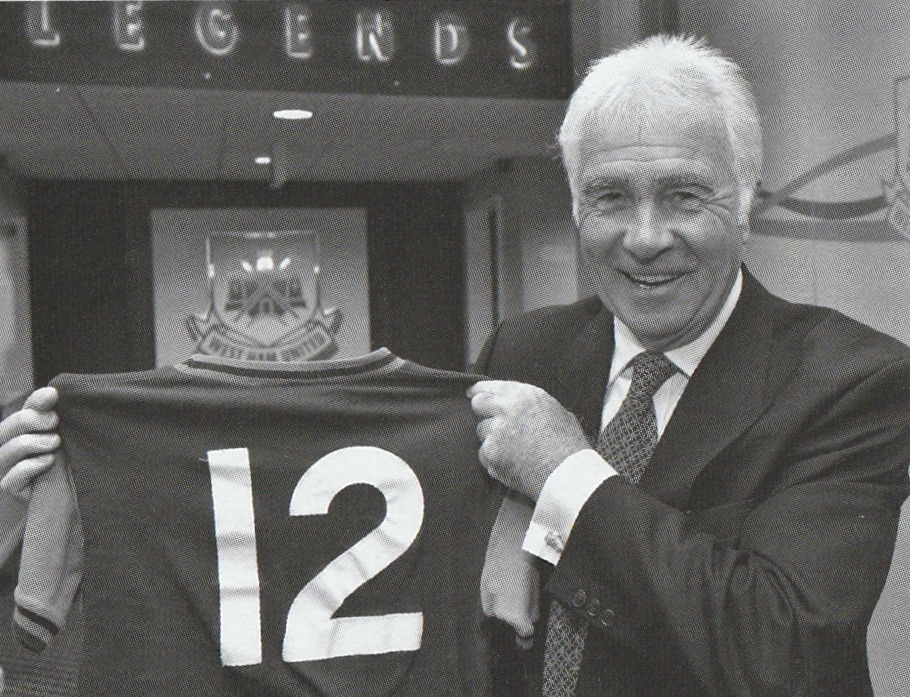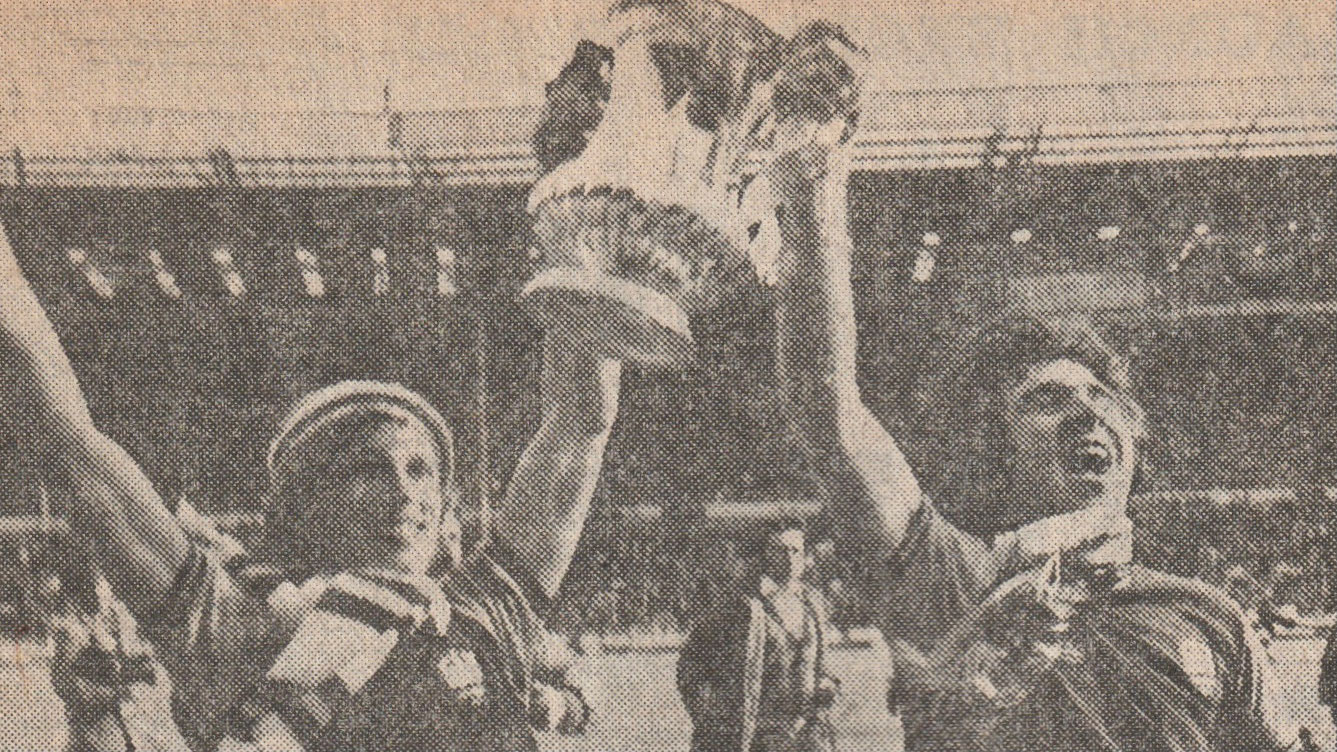In the second part of a new series commemorating the 50th anniversary of West Ham United’s fantastic FA Cup final triumph, striker BOBBY GOULD recalls the Hammers' victorious 1975 campaign, which saw the Irons overcome Southampton, Swindon Town, Queens Park Rangers, Arsenal, Ipswich Town and Fulham to lift the famous trophy at Wembley Stadium half a century ago...
From West Ham United to Wembley to Wolverhampton Wanderers and now Waimārama.
Nearly half-a-century on from kicking-off our 1975 FA Cup campaign with a decisive third-round goal, Bobby Gould recently visited New Zealand for a family reunion.
But neither distance nor time can supress the sprightly 78-year-old’s zest for life and all things football, especially when it comes to recalling his days in Claret & Blue.
“Just being at West Ham United during that FA Cup-winning season was something very special, indeed,” he smiles. “Knowing it was a moment that would never happen again, I was determined to enjoy everything that came my way.”
Bobby may well be 12,000 miles from home right now, but any thoughts of Wembley were light years away when he headed to the Boleyn Ground from Bristol City for £80,000 in November 1973.
“I’d met Ron Greenwood after an FA Youth Cup tie at Tottenham Hotspur and, having spent hours talking football, agreed to sign for him,” continues Gould, who would score 19 goals in 59 outings down West Ham way. “I’d been on £80 per week at Ashton Gate and, arriving home, my wife Marge asked how much I’d be earning? ‘Oh, we didn’t talk money,’ I replied. The following morning, I caught up with Ron, who said: ‘They’re getting £150 per week here – is that okay?’ I couldn’t believe my good fortune. I sat there thinking: ‘Bobby Gould, you’re a lucky man.’

“Next-up, I saw Bobby Moore wearing a dustbin bag. ‘Mister Moore, what are you doing?’ I enquired. ‘Sweating out a couple of lagers,’ he answered. We went on to strike up a great friendship but little did we know that, in 18 months’ time, we’d be on opposing sides in an FA Cup final.
“It proved a difficult opening few months. I got injured and, having previously been at Arsenal, wasn’t received too well at first. It was sacrilege for somebody like me to join a club like West Ham. I didn’t even know what one-touch football was until I arrived, while Trevor ‘Boogaloo’ Brooking didn’t even need to touch the ball once to take out two or three players with his clever body-swerves!
“I’d only ever played straight up the middle but Ron insisted I got myself out wide hugging the touchline, too. ‘I want to see the white paint on your heels,’ he’d say. It was a fantastic education.
“Ron and John Lyall taught everyone how the game should be played and, later on, much of my own coaching was based around what I’d learned on Chadwell Heath’s training pitches.”
West Ham were second-from-bottom when Bobby arrived and, following an embarrassing FA Cup defeat at the hands of third-tier Hereford United, they then only survived the dreaded drop in 1973/74 by one point.
With Lyall moving into the Hammers hot seat and Greenwood heading ‘upstairs’, the then 28-year-old soon found himself joined by some eager, young fresh-faced forwards as 1974/75 unfolded.

“John looked towards the lower divisions and Billy Jennings (aged 22), Keith Robson (21) and Alan Taylor (21) were great young lads, who were equally surprised to suddenly find themselves at West Ham,” observes ‘Gouldie’. “Although it’d been a big changeover it was a lovely time to be at a lovely Football Club and I really wanted those young boys to succeed.
“They were happy as day to be given their chance and, although there was the usual mickey-taking – Alan Taylor was so thin that I nicknamed him ‘Sparrow’ – they appreciated my experience could complement their youthful exuberance. It’d been the same at Wolves with Alan Sunderland and Steve Daley, where I also loved bantering with the youngsters.”
While Taylor’s time would come, Jennings, Robson and Gould struck 26 goals between them in a remarkable run that saw the Hammers head into Christmas having lost just twice in 19 matches.
Next-up came the FA Cup and a third-round tie at Southampton, where Bobby experienced mixed fortunes.
“We’d been unable to sell our home in Bristol and wanting to keep Marge and our two boys settled into family life, I’d set off for Chadwell Heath at 4am every morning,” he yawns. “It was a hideous journey and Ron and John acknowledged that. They were very kind to me, while ‘Boogaloo’ let me stay at his house in midweek, too.
“To avoid coming all the way to Upton Park just to travel down to Southampton, John told me stay home on Friday before meeting up with the team at The Dell.”
After Frank Lampard put the Hammers ahead, Gould’s 39th-minute diving-header doubled the lead before the striker’s afternoon took a distinct turn for the worse.
“I got clattered by Peter Osgood, who did me like a kipper,” grimaces Bobby. “How I continued until half-time, I just don’t know? I was in so much pain. The Dell was a traditional old stadium with steep steps up to the dressing room. I literally crawled up them thinking: ‘I’m in a bit of a state here.’
“Patsy Holland replaced me and, following our 2-1 win, the team coach dropped me off at Southampton station but upon reaching Bristol, I could barely walk. I’d cracked a bone in my leg and unable to drive my Volkswagen Beetle home, for once, I had to open my wallet and get a taxi. The cabbie was quite surprised when I tried to pay his fare with an old white fiver!”

While the luckless Gould hobbled from centre-stage, the Hammers’ march towards Wembley continued with valiant victories over Swindon Town (2-1 following a 1-1 draw) Queens Park Rangers (2-1) and Arsenal (2-0).
Returning to feature in a handful of league outings, Bobby then started our semi-final against Ipswich Town.
“I never suffered with nerves but I just froze,” he confides, looking back on the goalless draw at Villa Park. “One tie from Wembley, I didn’t think I’d ever get near an FA Cup final again. I’d wanted to do so well but it became the worst 70 minutes of my career.”
Despite keeping his starting place in the subsequent replay at Stamford Bridge, where another Taylor double secured our 2-1 victory, Gouldie then found himself named as substitute for the final.
“Patsy and myself were vying for the last starting place but, if I’m honest, I still wasn’t match-fit so all I got at Wembley was the No12 shirt. Purely down to circumstances at the time, it was still disappointing to receive that news. Equally, I was pleased for the likes of Sparrow and Billy Jennings, young lads who’d done well all season.
“I certainly wasn’t jealous of their success and was still determined to enjoy the build-up to Fulham. Throughout my career, I’d been influenced by some great ‘educators’ – the likes of John and Ron plus Bill McGarry at Wolves all taught me how to handle football’s ups and downs, remain disciplined and do the right things at the right times.”

Watching from the dug-out, Bobby saw match-winner Taylor score twice, once again, to secure a tremendous 2-0 victory over Moore’s Fulham.
“God only knows how many wings Sparrow had grown, he was absolutely flying!” he laughs with the trademark, infectious humour that underpinned his playing, managerial and broadcasting career. “With 20 minutes remaining, I developed quite a nasty cough but Ron and John, who were sitting in front of me, just wouldn’t take the hint. Finally, Ron turned around saying: ‘Gouldie, cough all you like but you aren’t going on!’
“Although there was no substitution, I never held it against them. John, who later offered me a coaching role, had his job to do and the more I got into management, the more I respected the decision,” insists Bobby, who would famously go on to lead Wimbledon’s ‘Crazy Gang’ to FA Cup glory over Liverpool’s ‘Culture Club’ 13 years later in 1988.
“I reckon I’m the only bloke to have received two FA Cup winners’ medals without ever entering the field of play!
“At the final whistle, I celebrated like a mad man. Rather than having been sat on the bench for 90 minutes, people would’ve thought I’d scored a hat-trick. I’ve still got a police constable’s helmet so do tell him to get in touch if he wants it back.”

Bobby did, however, start at Wembley in our FA Charity Shield clash with Derby County (0-2) three months later but, still unable to sell his house and still rising before dawn for that tiring trek from Bristol, the Hammers reluctantly allowed the footballer’s footballer to join this evening’s opponents for his second spell at Molineux in a £30,000 deal.
“I didn’t need to leave home until 7am, which meant three extra hours in bed,” continues Gould, who subsequently helped Wolves secure promotion to the top-flight in 1977. “But for that commute, I would’ve stayed with West Ham far longer.”
Fast-forwarding to 2024, eldest son Jonathan is Auckland FC’s goalkeeping coach, while younger sibling Richard is chief executive officer of the England and Wales Cricket Board (ECB).
With Ben Stokes’ England recently touring New Zealand, Waimārama proved an ideal rendezvous for the self-appointed Gould-Father and Marge to stage a family reunion.
“We’ve got two wonderful sons, two lovely daughters-in-law plus our fantastic grandchildren - we’re blessed to have the life we’ve got,” concludes Bobby with one final nod towards the Hammers. “Everyone showed such kindness and I matured as a person and a player – I learned to become a footballer and often wonder how things would’ve turned out if I’d joined West Ham United earlier in my career...”
